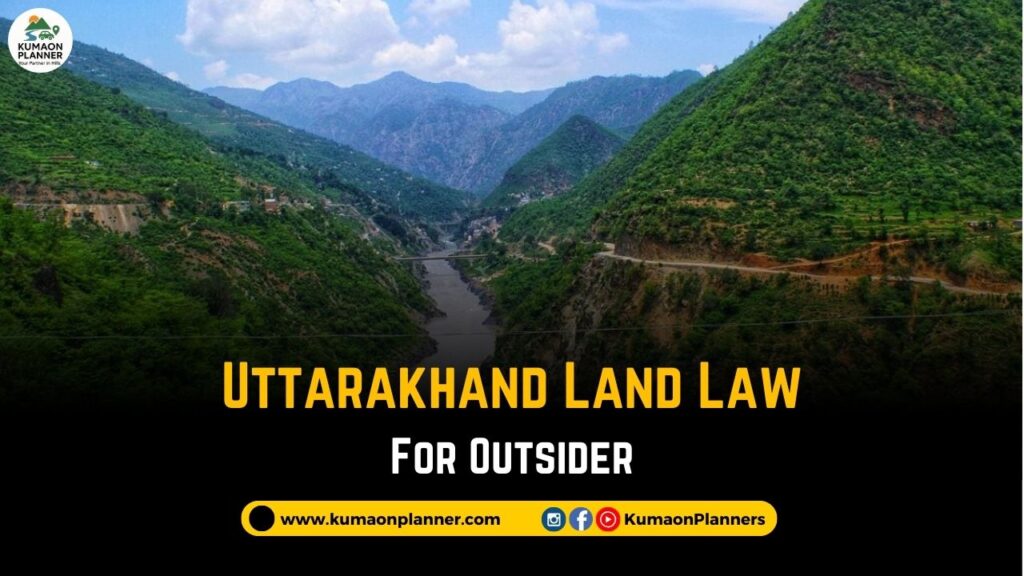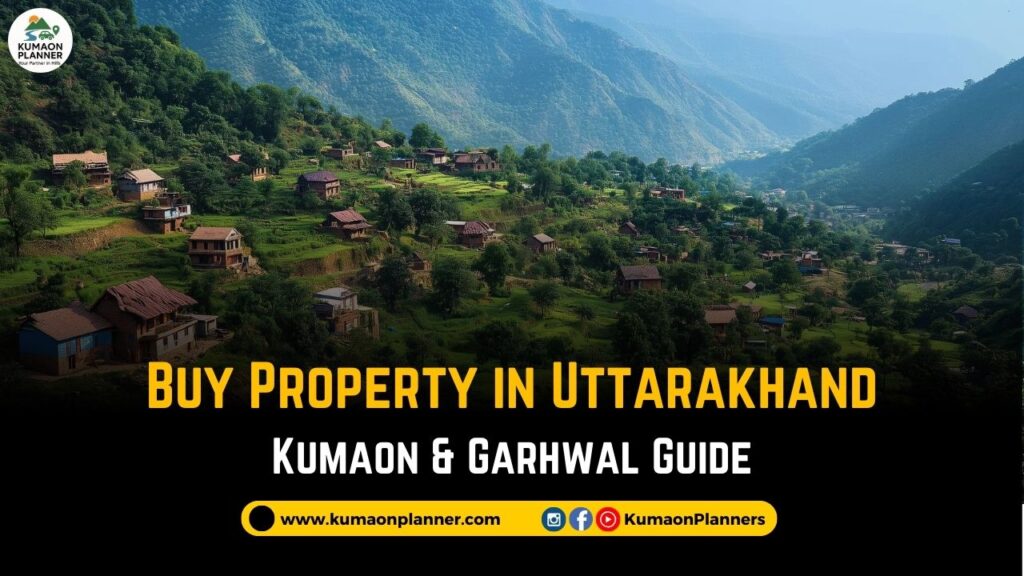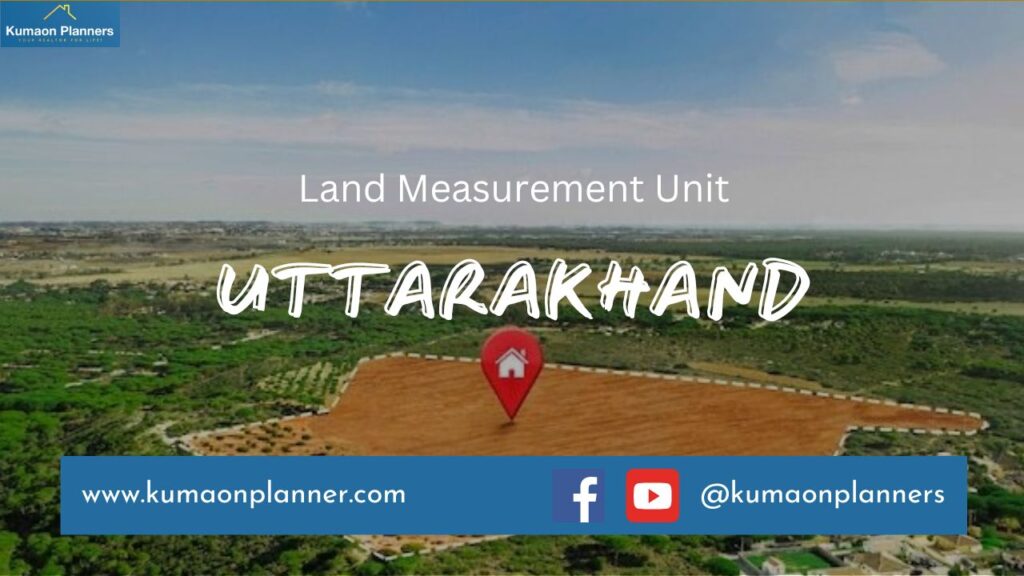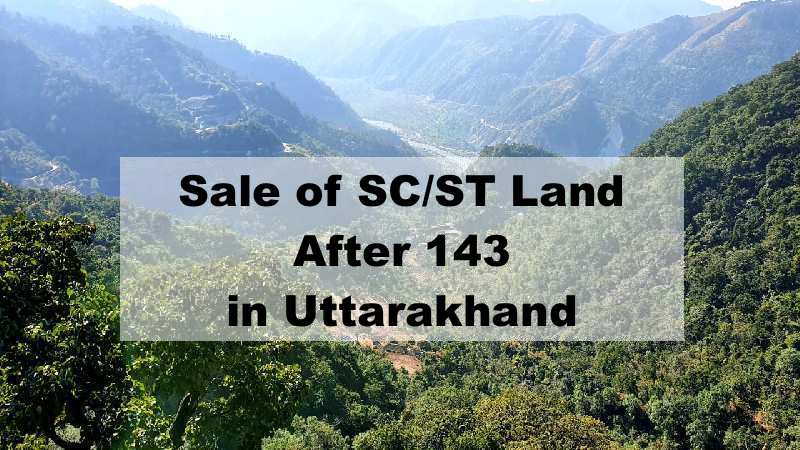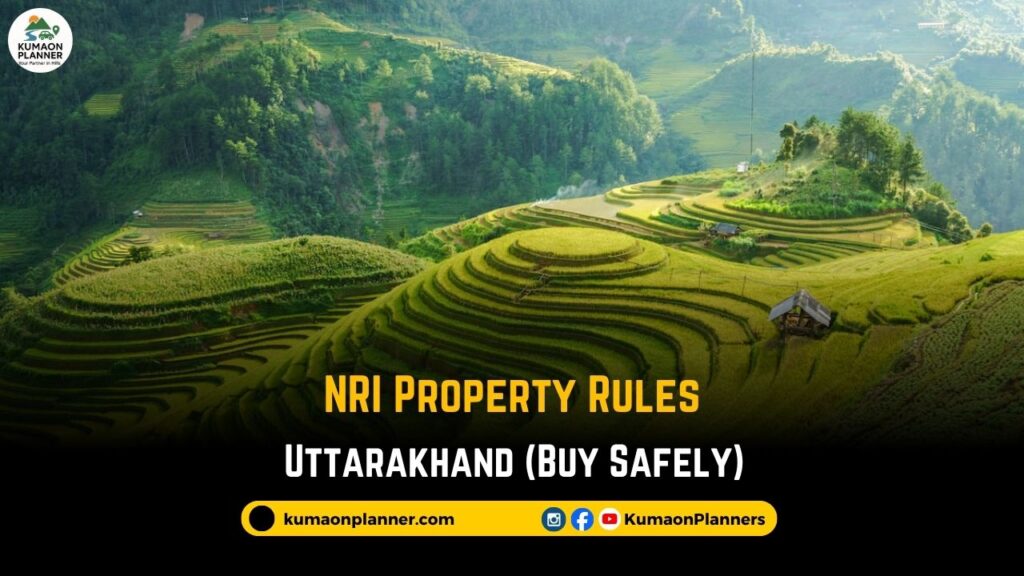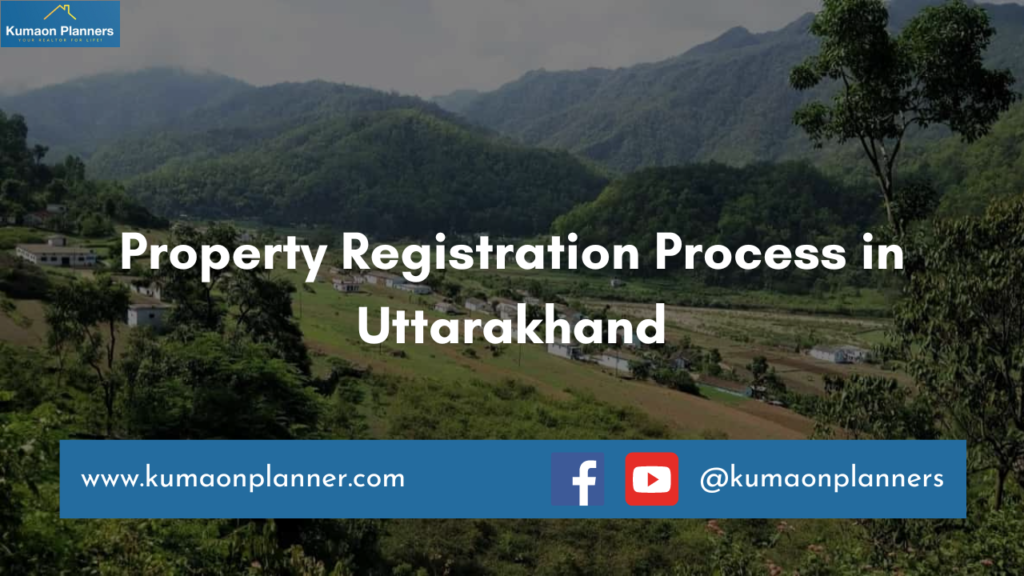Planning to buy land in Uttarakhand?
Before you do, it’s vital to understand the latest Bhu-Kanoon 2025 — the state’s updated land laws defining what outsiders can and can’t purchase.
This guide explains the legal rules, size limits, and approval process under the new amendments. Whether you’re looking for a peaceful home in Kumaon, a small farm in Garhwal, or a resort investment, knowing these laws will help you buy legally and safely.
Timeline of Uttarakhand Land Laws (2003–2025)
Land laws in Uttarakhand have changed with every shift in political and environmental priorities. Here’s how they’ve evolved for outsiders (non-domiciles) since the state’s formation:
| Year | Government / Context | Key Change | Impact on Outsiders |
|---|---|---|---|
| 2003 | N.D. Tiwari Govt (Congress) | Introduced the first restriction — outsiders could buy a maximum of 500 m² for residential use. | Marked the first official limit on non-resident purchases. Buying was still easy but capped in size. |
| 2007 | B.C. Khanduri Govt (BJP) | Reduced limit to 250 m². | Buying large plots became difficult; most had to settle for smaller holdings. |
| 2017–18 | Trivendra Singh Rawat Govt (BJP) | Removed size limits for non-agricultural purposes like tourism, housing, or industry (with DM approval). | Outsiders began buying large tracts under “business” pretexts — led to local opposition. |
| 2021–22 | Public Protests & Committees | Subhash Kumar Committee and others suggested new safeguards to protect local interests. | No immediate legal change, but momentum built toward reform. |
| 2025 | Pushkar Singh Dhami Govt (BJP) | “Bhu-Kanoon” Amendment (Feb 2025): – Outsiders barred from buying agricultural land in 11 districts. – 250 m² limit restored for residential plots. – DM discretionary power removed. – Affidavit & online monitoring made mandatory. | The strictest version so far. Outsiders now have limited access — only small residential plots or approved commercial use. |
Why These Changes Happened
Uttarakhand’s land policy has swung between openness and protection — each amendment responding to a different kind of pressure.
- 2003 & 2007: Locals raised concerns about rising land prices and outsiders buying large parcels, pushing the government to cap plot sizes.
- 2017–2018: A growth phase — the state wanted tourism and business investment, so restrictions were eased with DM approvals.
- 2021–2022: Public protests and expert panels warned of overdevelopment, forest loss, and displacement of villagers.
- 2025: The “Bhu-Kanoon” brought balance back toward preservation — limiting outsider ownership to protect ecology and local livelihoods.
In short, every shift reflects a tug-of-war between development and safeguarding the mountain way of life.
📜 Uttarakhand Bhu-Kanoon 2025: Key Highlights
The 2025 amendment, often called Bhu-Kanoon, has reshaped how outsiders can buy land in the state. It balances environmental protection with limited investment opportunities.
Here’s what changed:
- ❌ Outsiders cannot buy agricultural or horticultural land in 11 hill districts.
- ✅ They can buy residential plots up to 250 m² (about 2,690 sq ft).
- 🏡 Only one-time purchase allowed — no multiple or joint acquisitions.
- ⚖️ District Magistrate’s discretionary power removed — all deals now go through a standardized online process.
- 🧾 Affidavit and online monitoring mandatory for all outsider purchases.
- 🚫 Violation penalties include land repossession and legal action by the state.
Tip: Always confirm the land classification on the official Bhulekh Uttarakhand portal before you sign any agreement.
Current Land Rules for Outsiders (2025 – Bhu-Kanoon)
The 2025 amendment has made Uttarakhand’s land laws for outsiders the most restrictive since the state’s formation. It clearly defines who can buy, how much, and under what conditions.
Who is considered an ‘outsider’?
Anyone without a permanent residence or domicile certificate of Uttarakhand is legally considered an outsider, even if they have family or business connections in the state.
What Outsiders Can Do
✅ Buy residential land — up to 250 m² (around 2,690 sq ft).
✅ Make a one-time purchase only — cannot divide or combine plots.
✅ Buy in Haridwar or Udham Singh Nagar — these districts allow freer transactions, though residential size limits still apply.
✅ Lease or rent property for tourism, business, or personal use.
What Outsiders Cannot Do
❌ Buy agricultural or horticultural land in 11 districts (all except Haridwar and Udham Singh Nagar).
❌ Use proxies or family names to bypass the area limit — now tracked digitally.
❌ Seek DM approval for bigger plots — the discretionary power has been removed.
❌ File false affidavits — violations can lead to repossession by the government.
Read more about Latest Uttarakhand Bhu Kanoon.
Quick Reference Table
| Land Type | Allowed for Outsiders? | Limit / Condition |
|---|---|---|
| Agricultural / Horticultural Land | ❌ No (except Haridwar & Udham Singh Nagar) | Ban applies to 11 districts |
| Residential Land | ✅ Yes | Max 250 m², one-time purchase |
| Commercial Land / Business Use | ✅ Yes | Subject to local zoning and permits |
| Multiple Purchases | ❌ No | One plot per buyer |
| DM Discretionary Approval | ❌ Removed | No exceptions possible |
Legal Safeguards in the New System
- Affidavit Requirement: Every buyer must declare the intended land use.
- Online Monitoring Portal: Tracks outsider purchases across all districts.
- Government Repossession Clause: Land can be taken over if misused or misdeclared.
Practical Tips for Outsiders Buying Land in Uttarakhand
Buying land in the hills is very different from buying in the plains. Terrain, ownership records, and local customs can all affect your deal. These steps help outsiders stay compliant under the 2025 Bhu-Kanoon and avoid common traps.
1. Verify the Land Category
Check whether the plot is agricultural, horticultural, or residential in the official revenue records.
- Outsiders cannot buy agricultural or horticultural land in 11 districts.
- Always request the latest Khasra–Khatauni copy from the Tehsil office.
2. Confirm Seller’s Ownership
- Match the seller’s name in land records and ID proof.
- Avoid “benami” or proxy deals — they’re illegal and can lead to loss of ownership.
3. Stay Within the Legal Size Limit
- Maximum 250 m² for residential land.
- The one-time rule means no buying two smaller plots separately.
4. Check Location Restrictions
Some zones have additional restrictions — near forests, rivers, borders, or eco-sensitive areas.
Confirm with the local authority or Tehsil before signing the sale deed.
5. Hire a Local Advocate
A lawyer familiar with Uttarakhand’s property laws can:
- Verify land documents and titles.
- Prepare your sale agreement and affidavit correctly.
- Flag any hidden encumbrances or compliance issues.
6. Inspect Before You Buy
Visit the property in person. Check road access, water, and electricity.
Many hillside plots exist “on paper” but have no physical access or service connections.
7. Complete All Registrations & Affidavits
The 2025 law makes affidavit submission mandatory to declare intended land use.
Keep copies of the sale deed, affidavit, and payment receipts safely stored.
8. Be Cautious of Unrealistic Offers
If a deal looks too cheap, it usually hides legal or location problems.
Cross-check every plot on the Uttarakhand Bhulekh Portal before paying any token amount.
💡 Pro Tip: Use Kumaon Planner’s Property Verification & Legal Check service to confirm ownership, land category, and compliance before registration.
Other Important Land-Related Laws in Uttarakhand
Even if your property deal fits the 2025 Bhu-Kanoon guidelines, other state and central laws can still affect ownership, construction, or resale. Understanding these ensures you don’t hit roadblocks after buying land in Uttarakhand.
1. Zamindari Abolition and Land Reforms Act (UP, 1950 as applicable to Uttarakhand)
The foundation of all land ownership in Uttarakhand. It defines who can hold, transfer, and inherit land. Many sections continue unchanged from Uttar Pradesh law, and violations can void a transaction.
2. Ceiling on Land Holdings Act
Sets the maximum land area one person can own. Though outsiders are already limited under Bhu-Kanoon, this law still applies to large local holdings and joint ventures.
3. Forest Conservation Act, 1980
Buying or constructing on forest land (reserved or protected) is strictly prohibited.
Even “private forest” land may fall under forest records — always verify classification before registration.
4. Eco-Sensitive Zone (ESZ) Regulations
Areas around wildlife sanctuaries and national parks fall under ESZ limits.
Construction, tree felling, or land modification often require permission from the Forest and Environment departments.
5. Disaster Management & River Bed Laws
Properties near rivers, landslide-prone slopes, or seismic zones face construction height and distance restrictions.
Check local No Construction Zones defined after 2013 and 2021 floods.
6. Land Conversion Rules (Agricultural to Residential/Commercial)
In districts where agricultural land purchases are permitted (like Haridwar and Udham Singh Nagar), buyers must apply for land use conversion before building.
Conversion requires a formal application, government fee, and final approval order.
7. Registration Act, 1908 & Stamp Duty Rules, 1908 & Stamp Duty
Every sale deed must be registered with the Sub-Registrar Office.
Stamp duty rates vary by district and land type, but outsiders and locals pay the same.
💡 Tip: Always cross-verify property type and survey number on Bhulekh UK and confirm registration fee details on https://registration.uk.gov.in before final payment.
🛡 How Kumaon Planner Helps You
At Kumaon Planner, we bridge the gap between outsider interest and local compliance.
Our team assists buyers through every step — from land verification and legal coordination to property management and stay services.
We help you:
- Verify ownership, category, and legal status of land before purchase.
- Draft and review agreements in line with current Uttarakhand laws.
- Connect with trusted local professionals for registry, construction, and furnishing.
Whether you’re planning a holiday home or a long-term investment, we make sure your property journey in Uttarakhand stays safe, transparent, and legally sound.Kumaon Planner assists outsiders in:
Conclusion
Uttarakhand’s new Bhu-Kanoon has reset the rules — prioritizing ecological balance and local rights over open development.
For outsiders, the key lies in understanding boundaries rather than pushing them.
- Stay within the 250 m² limit.
- Avoid agricultural plots in restricted districts.
- Verify every document on official government portals.
- And when in doubt — get professional verification before paying a single rupee.
With the right preparation, owning a small piece of the hills can still be a peaceful, lawful reality.
Frequently Asked Questions (FAQ)
Yes, but the outsider’s share will still be subject to the legal size limit (250 m² residential). You can’t bypass the law by sharing ownership.
Yes, if it is inherited legally through family lineage, but selling or converting it is still subject to restrictions.
Yes, outsiders can lease land for agriculture or tourism with proper agreements. Ownership, however, stays with the local holder.
The state can seize the land, impose penalties, and even initiate legal proceedings.
Helpful Guides:
How to Verify Land Records in Uttarakhand
Best Places to Buy Property in Uttarakhand
Avoid Land Fraud in Uttarakhand

